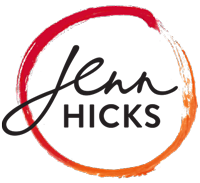What Is Aphasia? Types (Broca’s, Wernicke’s, Global) & How Speech Therapy Helps
Aphasia is a language disorder caused by damage to the brain, most commonly from a stroke, traumatic brain injury (TBI), or neurological condition. It affects a person’s language skills and can impact their ability to speak, understand, read, and write. It is important to remember that although aphasia affects language skills, it does *not* affect their intelligence, just their ability to express it.
Understanding the different types and how speech therapy can help is crucial for recovery. Let’s break it down.
What Causes Aphasia?
Aphasia occurs when the language centers of the brain (typically in the left hemisphere) are damaged. The most common causes include:
– Stroke (25-40% of stroke survivors develop aphasia) (1)
– Traumatic brain injury (TBI) (also referred to as Acquired Brain Injury or ABI)
– Brain tumors
– Progressive neurological disorders (e.g., Multiple Sclerosis, Parkinson’s Disease, Primary Progressive Aphasia)
There Are 3 Main Types of Aphasia
Aphasia varies widely—some people struggle to speak single words or form sentences, while others speak fluently but nonsensically. The three most common types are:
1. Broca’s Aphasia (Non-Fluent Aphasia)
Here’s what Broca’s Aphasia looks like:
– Slow, effortful speech with short phrases (e.g., “Want… food… now.”)
– Difficulty forming complete sentences but understanding is relatively preserved.
– The person knows what they want to say but can’t get the words out. This can cause frustration.
– Cause: Damage to Broca’s area (in the frontal lobe).
2. Wernicke’s Aphasia (Fluent Aphasia)
Here’s what Wernicke’s looks like:
– Speech is fluent but contains nonsense words or jumbled sentences (e.g., “The splooner is raining over the purple elephant.”).
– Reduced awareness – the person may not realize they’re not making sense.
– Poor comprehension – the person may not understand what is being said to them.
– Cause: Damage to Wernicke’s area (in the temporal lobe).
3. Global Aphasia (Severe Aphasia)
Here’s what Global Aphasia looks like:
– Extremely limited speech (maybe a few words like “yes” or “no”).
– Difficulty understanding language, reading, or writing.
– Cause: Widespread damage to multiple language areas (common after a major stroke).
Learn more about the different types of aphasia here.
*(Other types of aphasia include Primary Progressive Aphasia [PPA, seen in dementia].)*
How Speech Therapy Helps
While recovery depends on the severity of brain damage, speech therapy can significantly improve communication and help communication partners manage. Techniques include (but are not limited to):
1. For Broca’s Aphasia:
– Melodic Intonation Therapy (MIT): Uses melody to tap into the right brain’s musical pathways.
– Script Training: Practicing high-use phrases (e.g., “I need help”).
– Training in how to compensate.
2. For Wernicke’s Aphasia:
– Auditory Comprehension Drills: Gradually increasing complexity of instructions.
– Visual Cues: Using pictures or gestures to reinforce meaning.
3. For Global Aphasia:
– Augmentative and Alternative Communication (AAC): Introducing tools like picture boards or speech-generating devices.
– Intensive Repetition: Rebuilding basic vocabulary (“water,” “bathroom”).
In general therapy goals focus on:
✔️ Restoring speech & language skills (when possible).
✔️ Teaching compensatory strategies (e.g., gestures, writing keywords).
✔️ Improving quality of life by reducing isolation.
Can Aphasia Improve?
Yes! While recovery varies, research shows:
– Early intervention (starting therapy ASAP) leads to better outcomes (2).
– Neuroplasticity allows the brain to “rewire” language networks over time.
– Group therapy and caregiver training boost progress (3).
Key Takeaways
– Aphasia affects language, not intelligence.
– Broca’s = effortful speech, Wernicke’s = fluent but nonsensical, Global = very limited speech.
– Speech therapy tailors techniques to the type of aphasia.
– Recovery is possible, especially with early, consistent therapy.
If you or a loved one has aphasia, seek a speech-language pathologist (SLP) who specializes in adult neurological communication disorders.
Need help? Contact us at My Speech Therapy for a complimentary consultation.
References
1. National Institute on Deafness and Other Communication Disorders (NIDCD). Aphasia Statistics.
2. Brady et al. (2016). Speech and language therapy for aphasia after stroke. Cochrane Database.
3. American Speech-Language-Hearing Association (ASHA). Aphasia Treatment Approaches.
